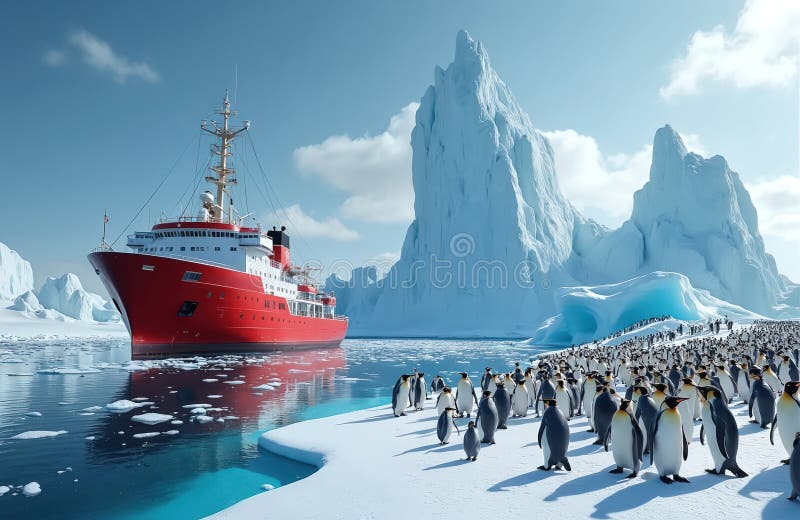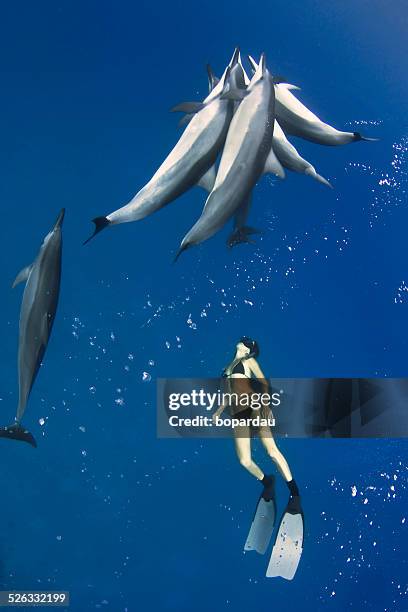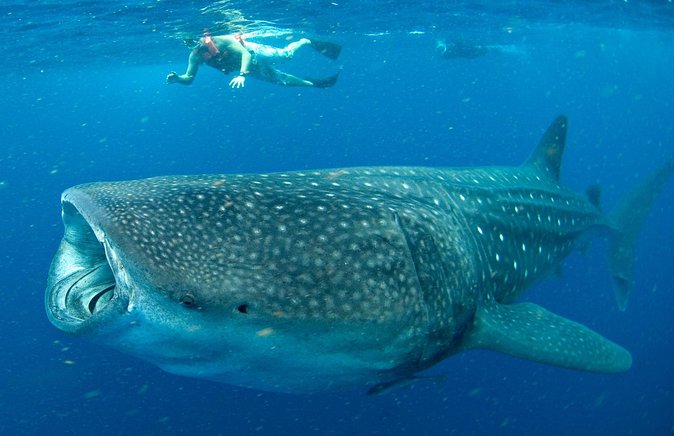Ocean's Embrace: Three Unforgettable Wildlife Encounters for the Responsible Traveler

The ocean, a vast and mysterious realm, holds a treasure trove of life, from the smallest plankton to the largest whales. As travelers, we have a unique opportunity to witness these wonders firsthand, but with this privilege comes a responsibility to protect the delicate ecosystems that support them. At VistaLocation.com, we believe that travel should be both enriching and ethical. Join us as we explore three unforgettable wildlife encounters, each emphasizing sustainable and responsible travel practices, ensuring that future generations can also marvel at the ocean's embrace.
Antarctic Expedition - A Frozen Paradise
Imagine yourself aboard a small expedition ship, navigating the legendary Drake Passage. The journey begins under a dramatic, storm-laden sky, the waves testing your sea legs. But as you cross into the Antarctic Convergence, the waters transform. The turbulence subsides, and a profound stillness settles. You awaken to a breathtaking panorama: colossal icebergs, sculpted by wind and time, drifting silently in calm, reflective waters, mirroring the soft hues of the sunrise. The air is crisp and clean, carrying the faint sound of cracking ice – a symphony of nature's artistry.
This is Antarctica, a frozen paradise teeming with life. Onboard, you're not just a tourist; you're an explorer, a student. Marine biologists deliver captivating lectures, sharing their knowledge of the region's unique ecosystem and the challenges it faces. Each day brings new adventures: zodiac landings on penguin-covered shores, where you can observe these comical creatures waddling, diving, and porpoising alongside the ship with playful curiosity. The highlight, perhaps, is witnessing majestic humpback whales breaching in the golden hour, their massive bodies arcing gracefully against the backdrop of ice and snow.
Responsible Travel in Antarctica:
The key to experiencing Antarctica responsibly is choosing an expedition operator committed to sustainability. Look for companies that adhere to the guidelines of the International Association of Antarctica Tour Operators (IAATO). These guidelines include:
- Minimizing disturbance to wildlife: Maintaining a safe distance from animals, avoiding loud noises, and respecting breeding colonies.
- Preventing the introduction of non-native species: Thoroughly cleaning boots and gear before landing.
- Proper waste management: Ensuring all waste is removed from the continent.
- Supporting scientific research: Many expedition operators collaborate with scientists, contributing to our understanding of the Antarctic environment.
Photography Tips:
- Capture the ethereal blue light: Antarctica is known for its stunning blue ice. Use a polarizing filter to reduce glare and enhance the colors.
- Focus on wildlife: Use a telephoto lens to capture close-up shots of penguins, seals, and whales without disturbing them.
- Tell a story: Document the landscape, the wildlife, and the people you meet.
Before you book your Antarctic adventure, research expedition operators that prioritize environmental protection and actively contribute to scientific research. Your choice can make a real difference in preserving this pristine wilderness.
Kona, Hawaii - Dance with the Spinner Dolphins
From the icy landscapes of Antarctica, we journey to the warm, tropical waters of Kona, Hawaii, for an encounter of a different kind: a freediving experience with spinner dolphins.
Imagine waking before dawn, the air thick with the sweet scent of plumeria. As you approach the coast, the ocean is a tranquil expanse, reflecting the first light of day. The anticipation builds as you prepare to enter the water.
The visibility is incredible, the underwater world unfolding before you in crystal-clear detail. Then, you see them: a pod of spinner dolphins, gracefully twirling and echolocating, welcoming you into their domain.

The feeling is exhilarating – a sense of connection with these intelligent and playful creatures. But it’s crucial to remember that we are guests in their home.
Responsible Dolphin Encounters:
- Passive Observation: The most ethical way to interact with spinner dolphins is through passive observation. Allow them to approach you, and avoid any behavior that could disturb them, such as chasing, touching, or making loud noises.
- Respect Resting Time: Spinner dolphins need to rest during the day after hunting at night. Avoid encounters during their resting hours.
- Local Regulations: Be aware of and adhere to local regulations and guidelines for responsible dolphin encounters. The Hawaiian government has strict rules in place to protect these animals.
- Choose Reputable Operators: Select tour operators committed to dolphin conservation and respectful interactions. Look for companies that educate their guests about dolphin behavior and the importance of protecting their habitat.
Underwater Photography Tips:
- Use Natural Light: Avoid using flash photography, which can startle the dolphins. Rely on natural light to capture their graceful movements.
- Wide-Angle Lens: A wide-angle lens will allow you to capture the dolphins in their environment.
- Patience is Key: Be patient and wait for the perfect moment to capture the dolphins' playful behavior.
Experience the magic of swimming with spinner dolphins responsibly by booking with reputable local operators dedicated to dolphin conservation and respectful interactions. Here's a link to a trusted operator.
Yucatan Peninsula, Mexico - Snorkeling with Gentle Giants
Our final ocean encounter takes us to the warm, turquoise waters of the Yucatan Peninsula, Mexico, for a snorkeling adventure with whale sharks, the gentle giants of the sea.
The early morning boat ride is filled with anticipation. The guides, experienced and knowledgeable, scan the horizon for the telltale signs of these magnificent creatures. Finally, they spot them: massive shadows gliding beneath the surface.
The moment you slip into the water is awe-inspiring. Coming face-to-face with a whale shark is an experience you'll never forget. Its skin, patterned with a constellation of spots, shimmers in the sunlight. It moves with effortless grace, a gentle giant in its underwater kingdom.

Responsible Whale Shark Encounters:
- Maintain a Safe Distance: Keep a respectful distance from the whale sharks, typically a minimum of 5 meters.
- No Touching: Never touch or attempt to ride the whale sharks.
- Avoid Flash Photography: Flash photography can disturb the animals.
- Sustainable Practices: Choose tour operators that follow sustainable tourism practices, such as limiting the number of swimmers per whale shark and using biodegradable sunscreen.
- Support Conservation Efforts: Look for operators that actively support whale shark research and conservation efforts.
Conservation Efforts:
The Yucatan Peninsula is home to one of the largest whale shark aggregation areas in the world. Conservation efforts are in place to protect these gentle giants and their habitat, including:
- Marine Protected Areas: Establishing marine protected areas to safeguard whale shark feeding grounds.
- Sustainable Tourism Initiatives: Implementing sustainable tourism practices to minimize the impact of human activities.
- Research and Monitoring: Conducting research to better understand whale shark behavior and population dynamics.
Choose tour operators that actively support whale shark research and conservation, ensuring that these magnificent creatures continue to thrive in their natural habitat.
Conclusion: Protecting the Ocean's Embrace
These three unforgettable wildlife encounters – an Antarctic expedition, a swim with spinner dolphins in Hawaii, and snorkeling with whale sharks in the Yucatan – offer a glimpse into the wonders of the ocean. But these experiences come with a responsibility: to travel sustainably and ethically, minimizing our impact on the environment and respecting the animals we encounter.
By choosing responsible tour operators, following guidelines for wildlife interactions, and supporting conservation efforts, we can help protect the ocean's fragile beauty and ensure that future generations can also experience the magic of the ocean's embrace. Let's travel with intention, leaving only footprints and taking only memories, preserving these incredible ecosystems for years to come.